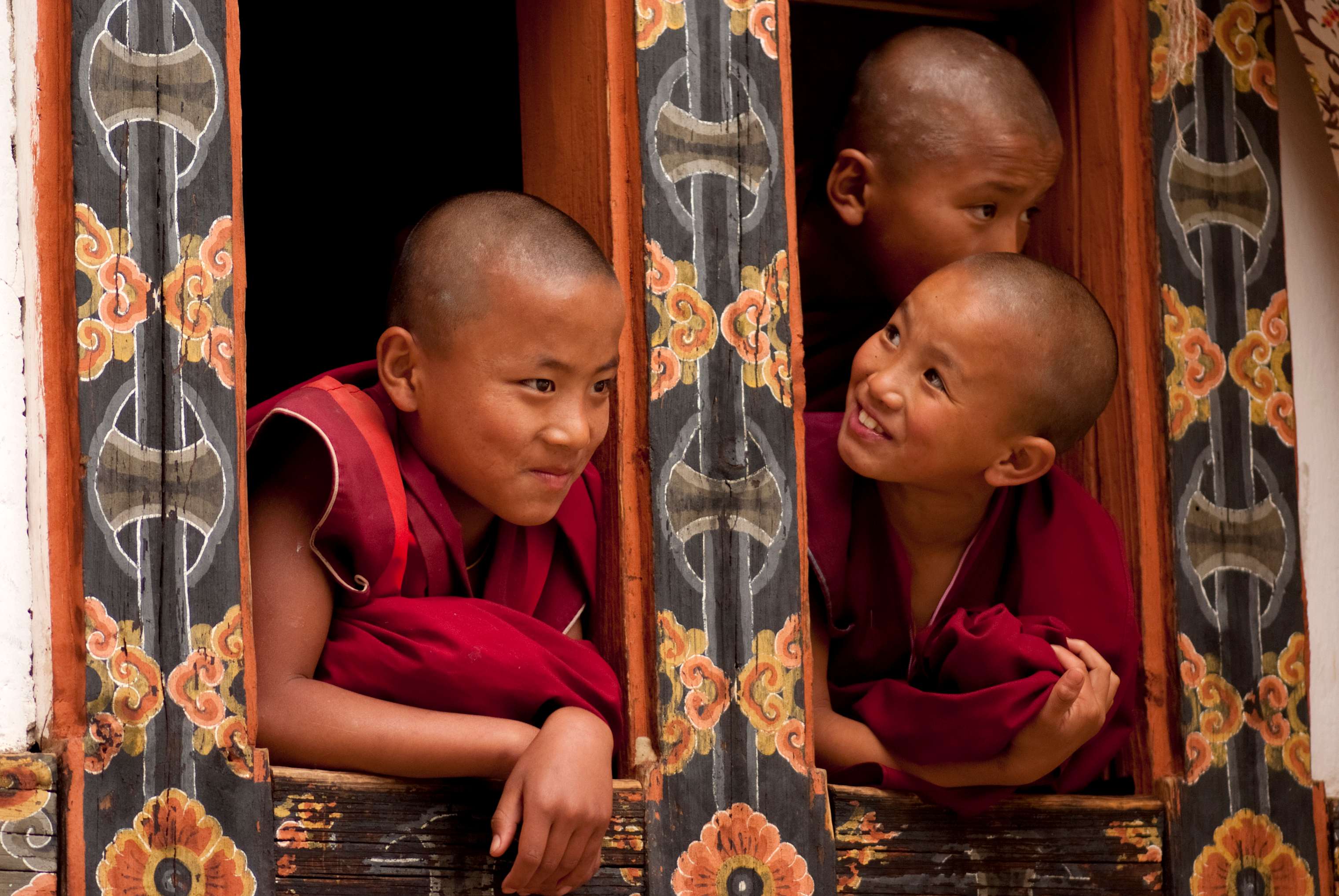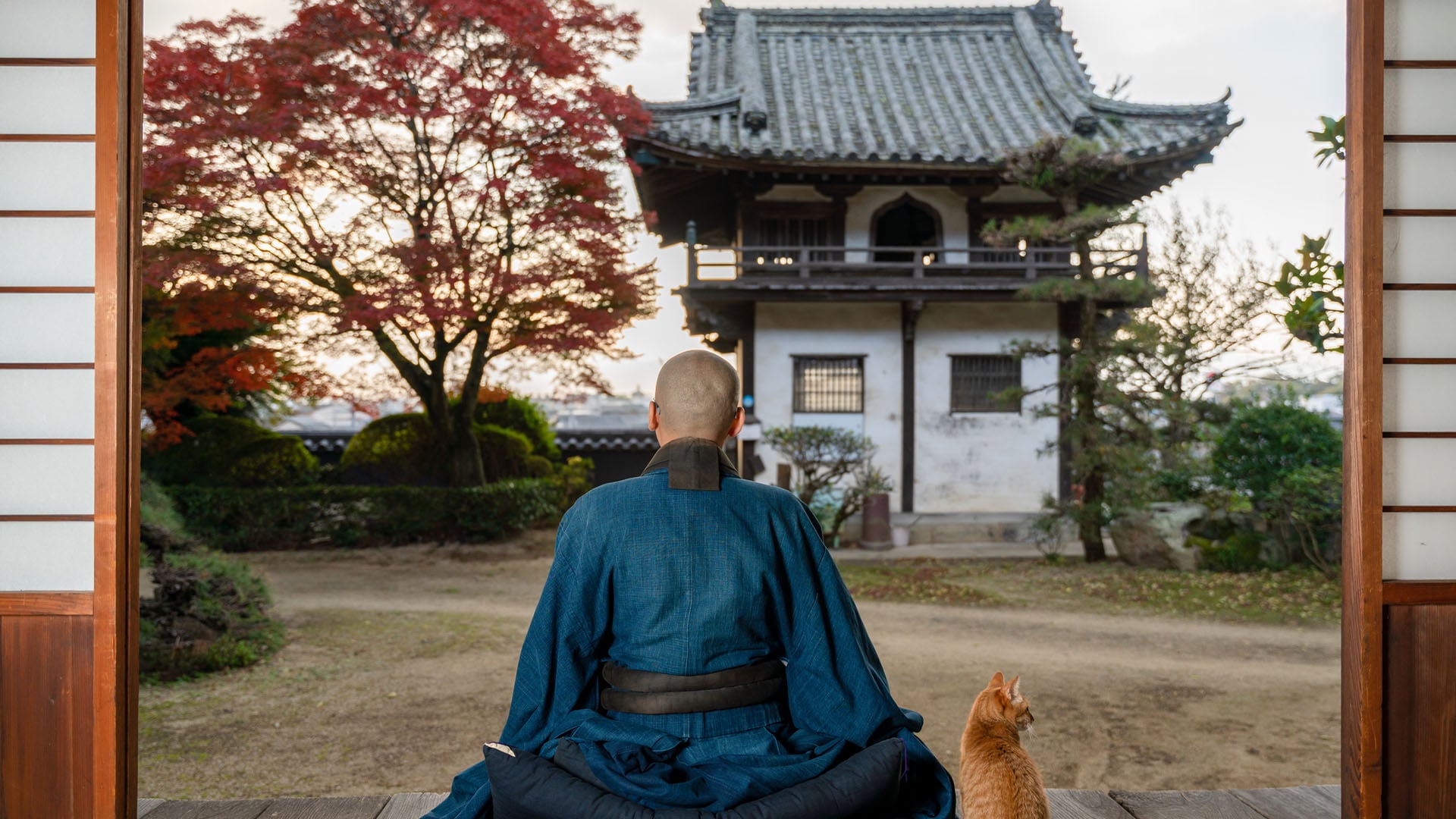Culture & Traditions
Immerse yourself in Bhutan's rich tapestry of culture and tradition.
Buddhism is the predominant religion in Bhutan, followed by Hinduism. The everyday life of the Bhutanese reflects the influence of religion. The monasteries, stupas, prayer flags, prayer wheels, and religious places have kept Buddhism alive in the Himalayan kingdom.
Kira is the traditional costume for women in Bhutan. It is an ankle-length dress over which a short jacket may be worn. Bhutanese men wear 'Gho', a knee-length robe tied by a belt. The dresses have pouches that earlier held food bowls and small daggers and now hold modern accessories such as mobile phones.
Bhutanese celebrate festivals throughout the year. The most important is tshechu, which falls on a specific day of a lunar month and lasts 3-5 days. It is generally celebrated in a dzong, an ancient fortress with a courtyard, temple, and administrative office. Dzongs are scattered throughout Bhutan. People from the district and surrounding areas gather at dzongs to enjoy the religious performances, receive blessings, and socialize. The celebration is marked by masked dances called chham. Monks and locals wear silk robes and animal masks depicting saints, deities, legendary figures, and animals. The colourful festival draws foreign visitors.
Bhutan's national language is Dzongkha. The residents of the east and west have their own dialects. In most schools, the language of instruction is English. A large proportion of the urban populace speaks English.
Travel Stories
Get inspired about Your Trip to Bhutan
Unlock more by subscribing to our newsletter.
With our newsletter, you’ll get access to regular communications that inspire you and help you explore the world your way.



